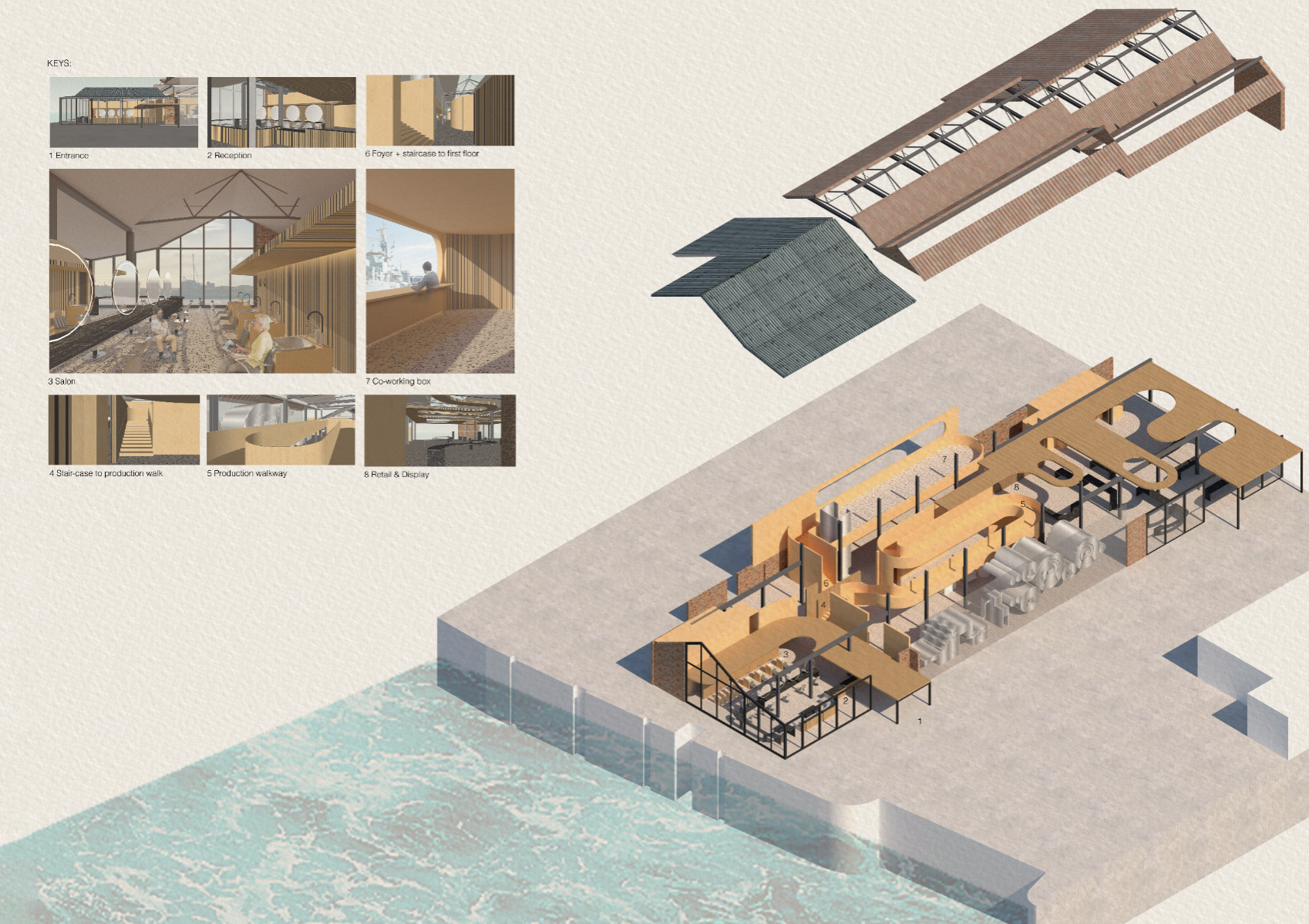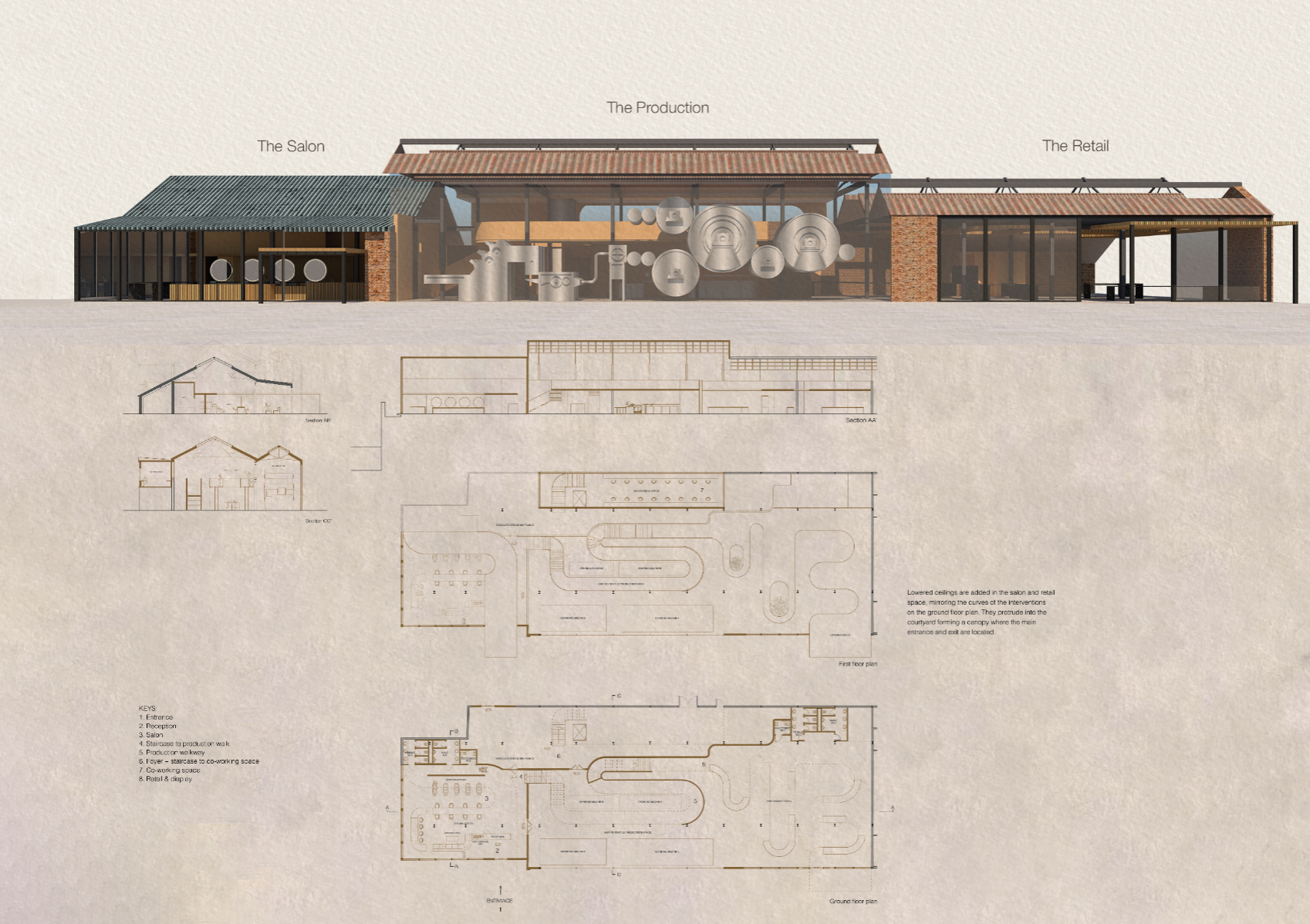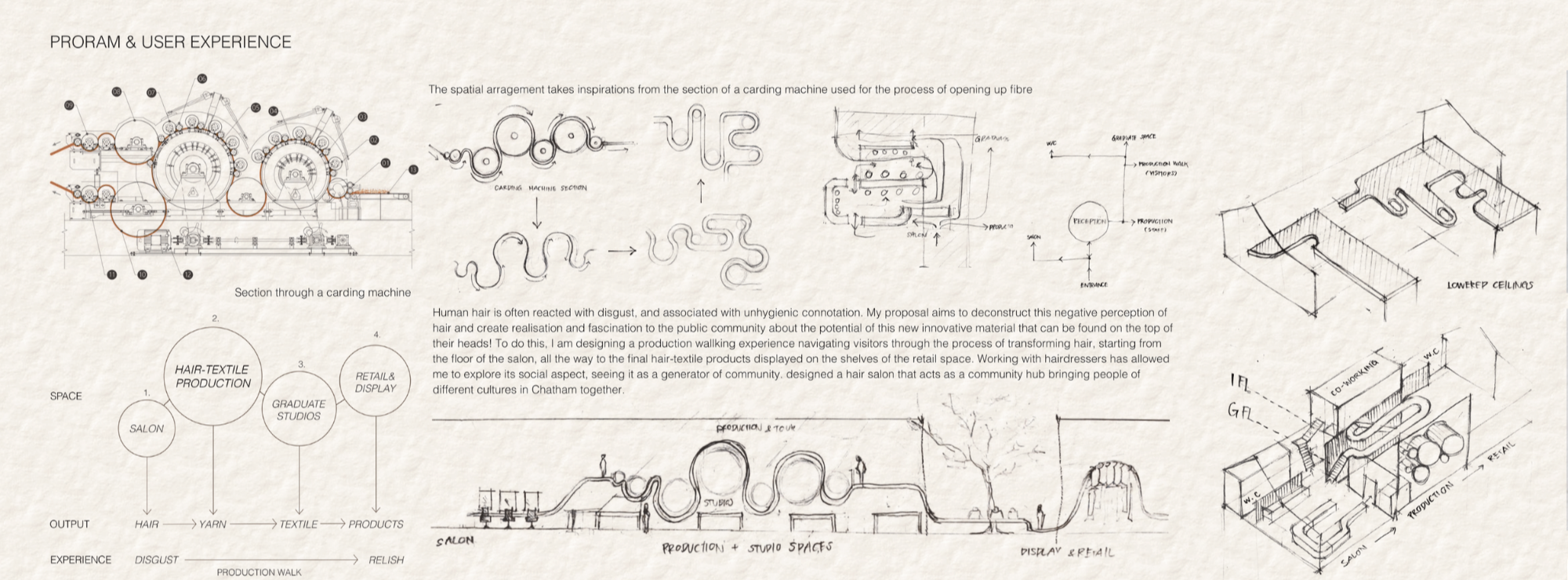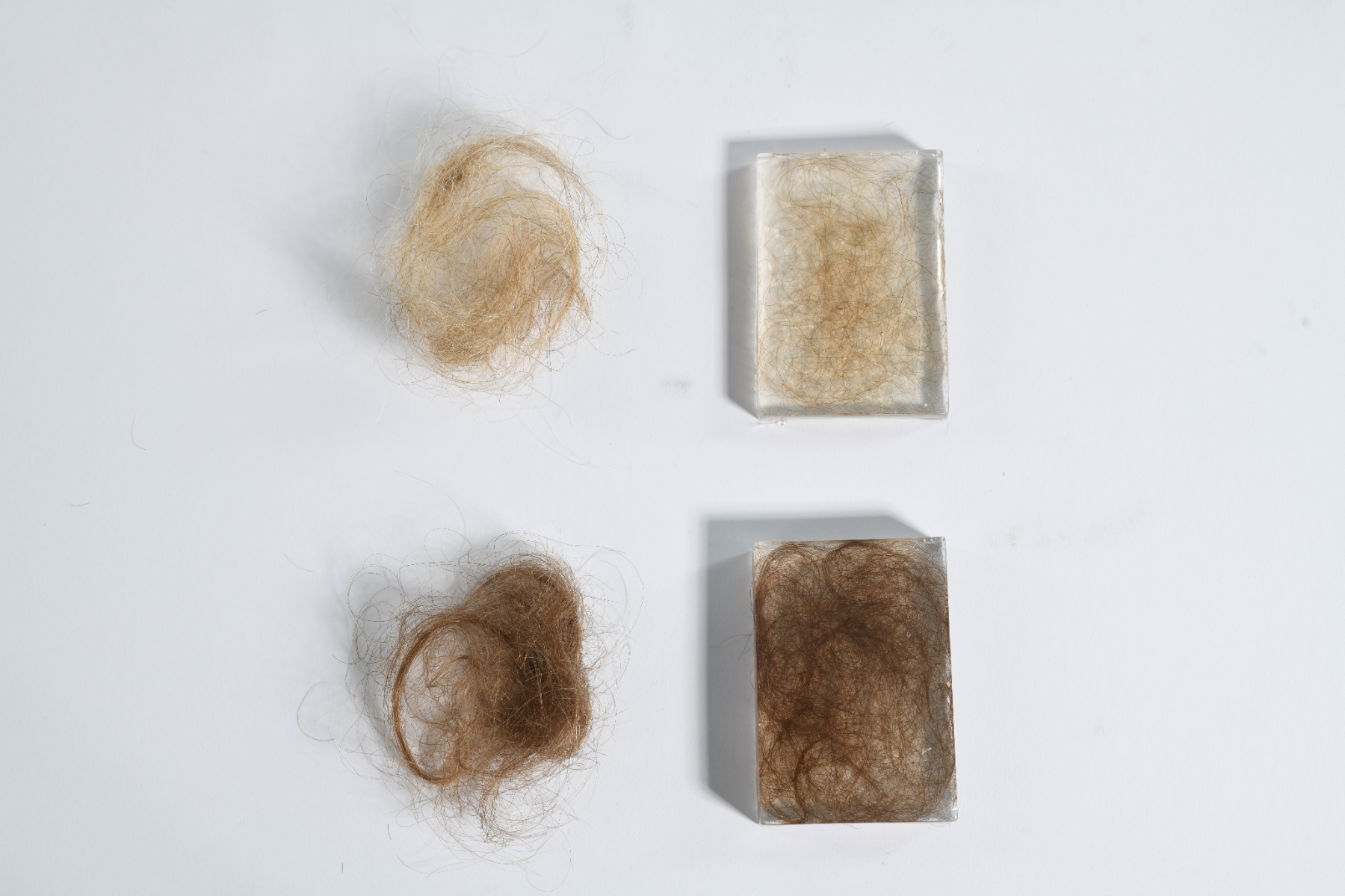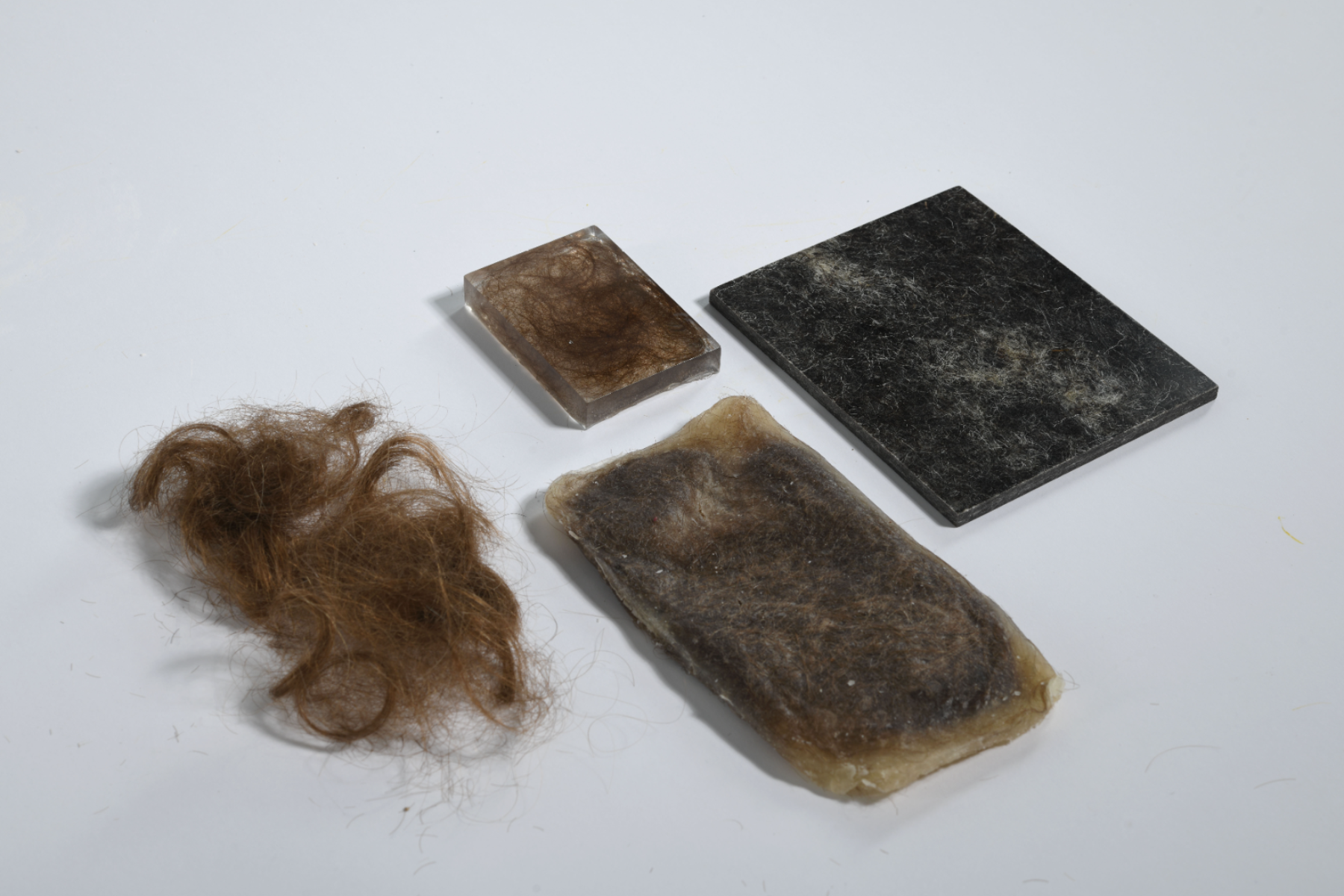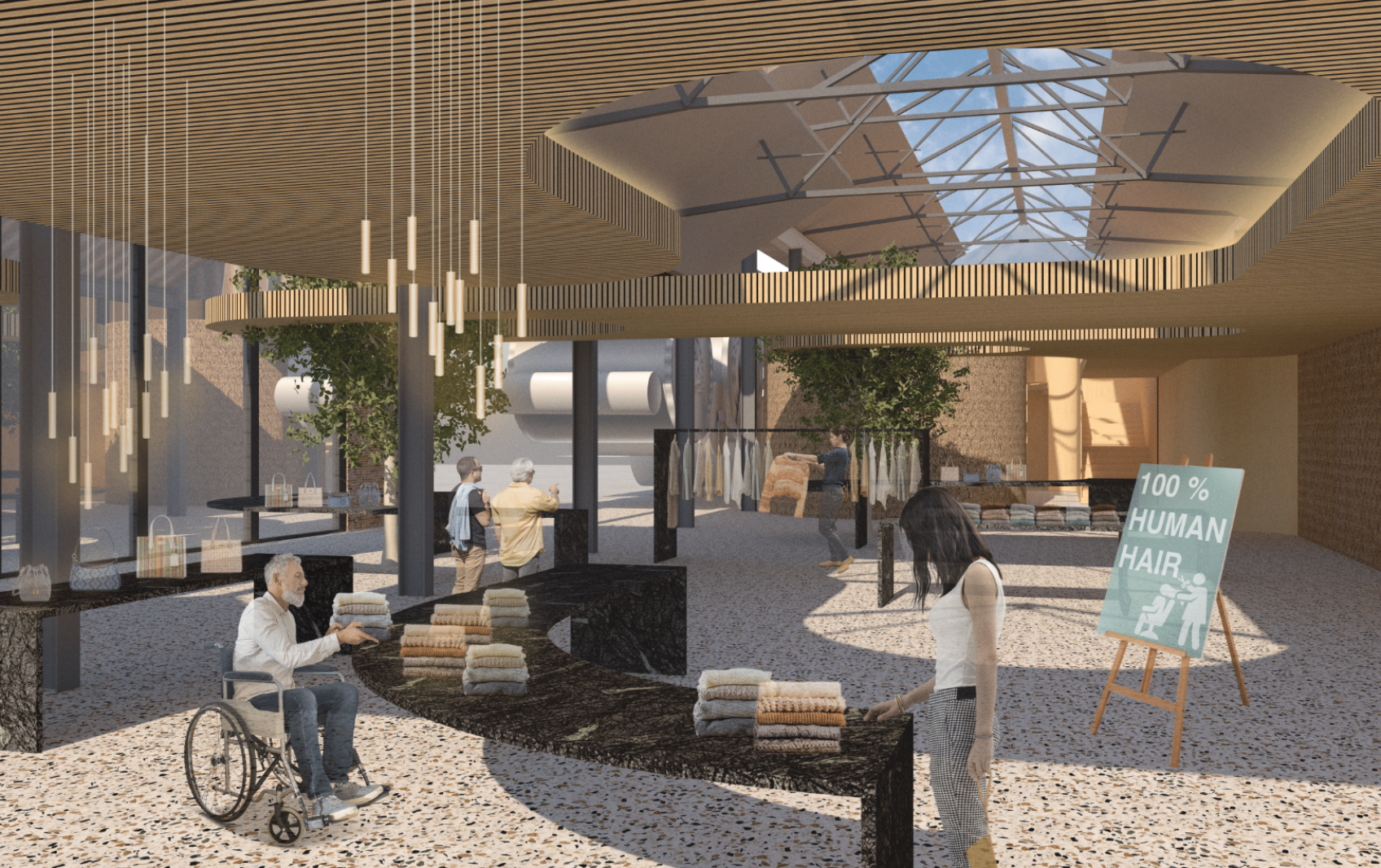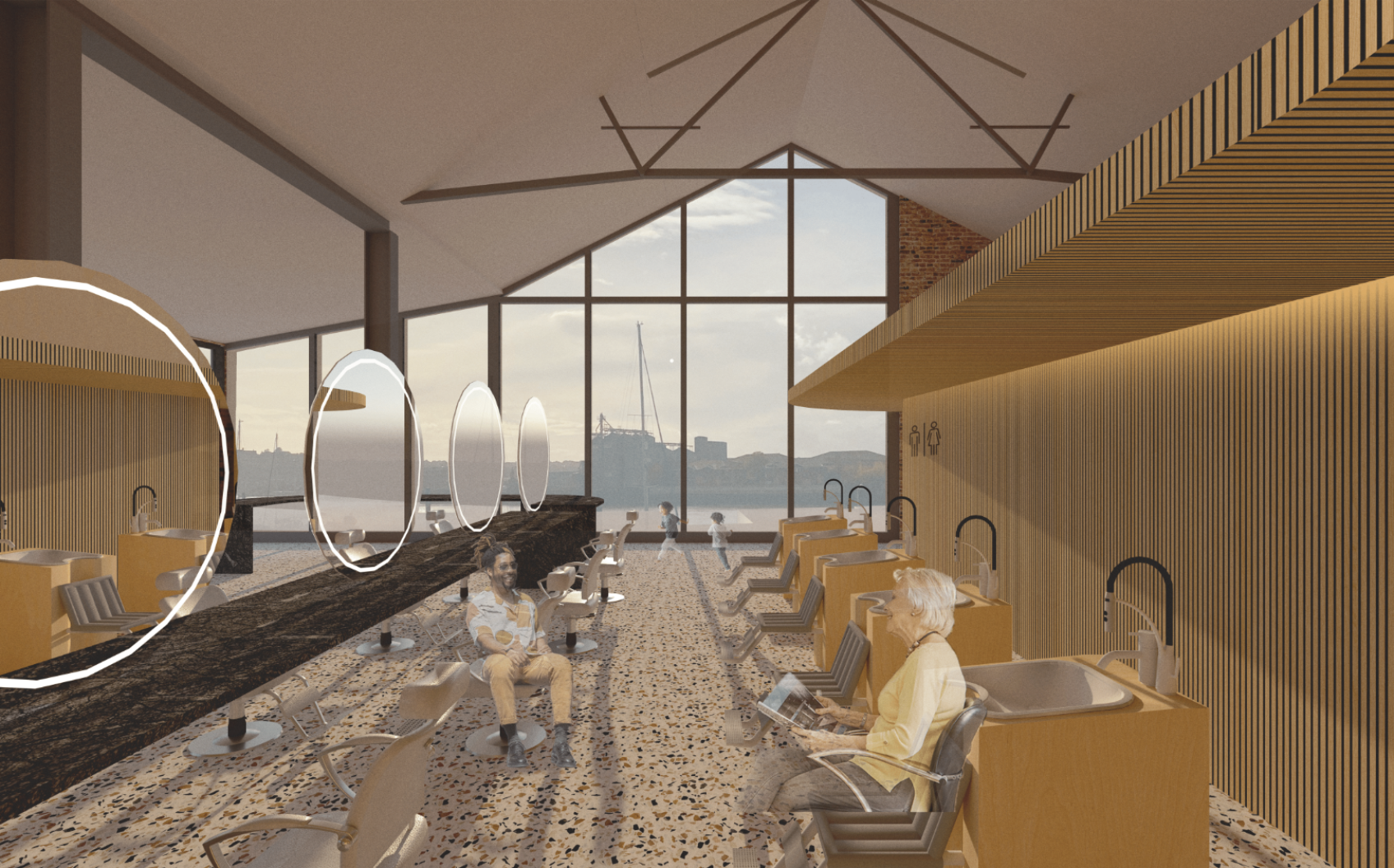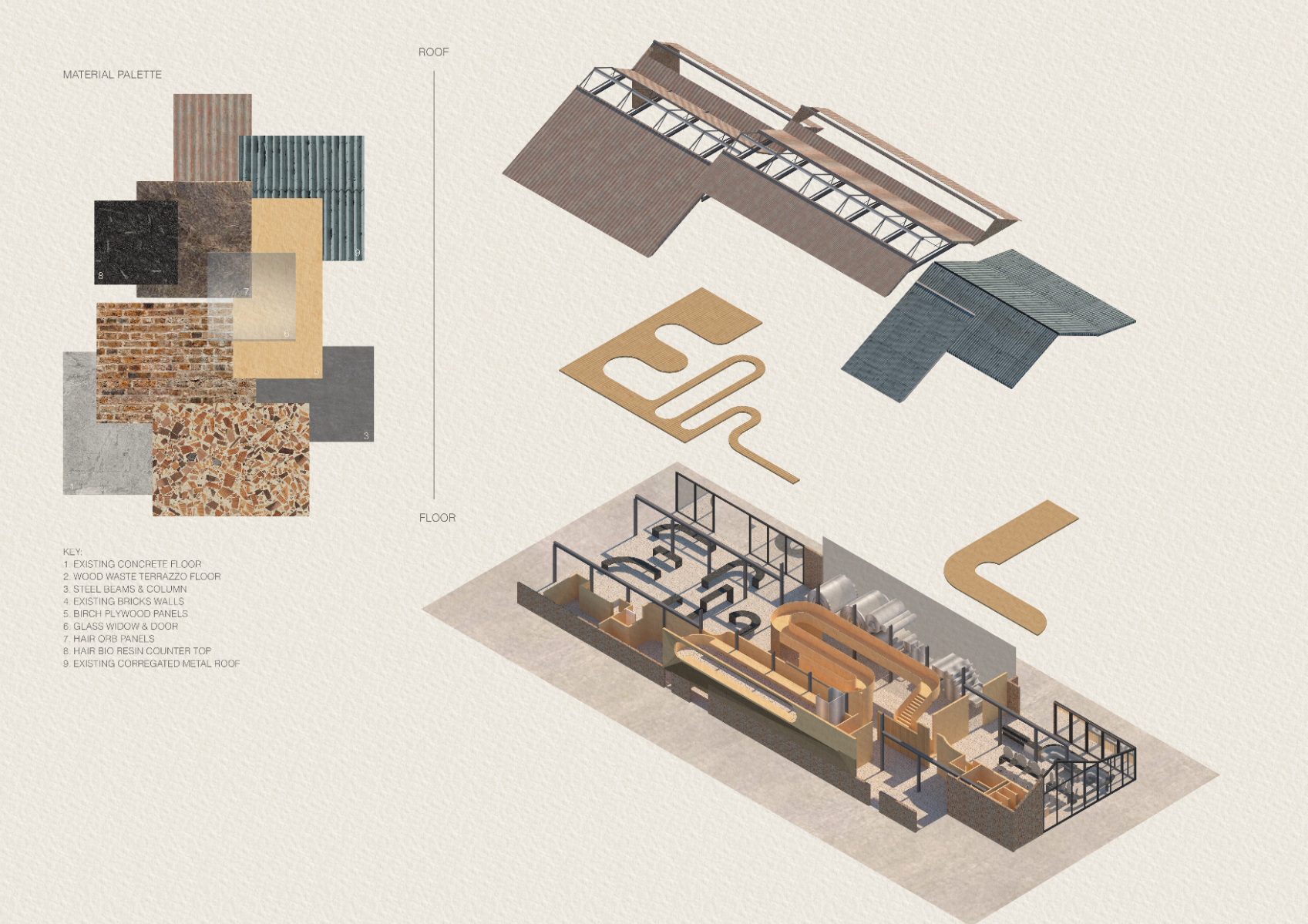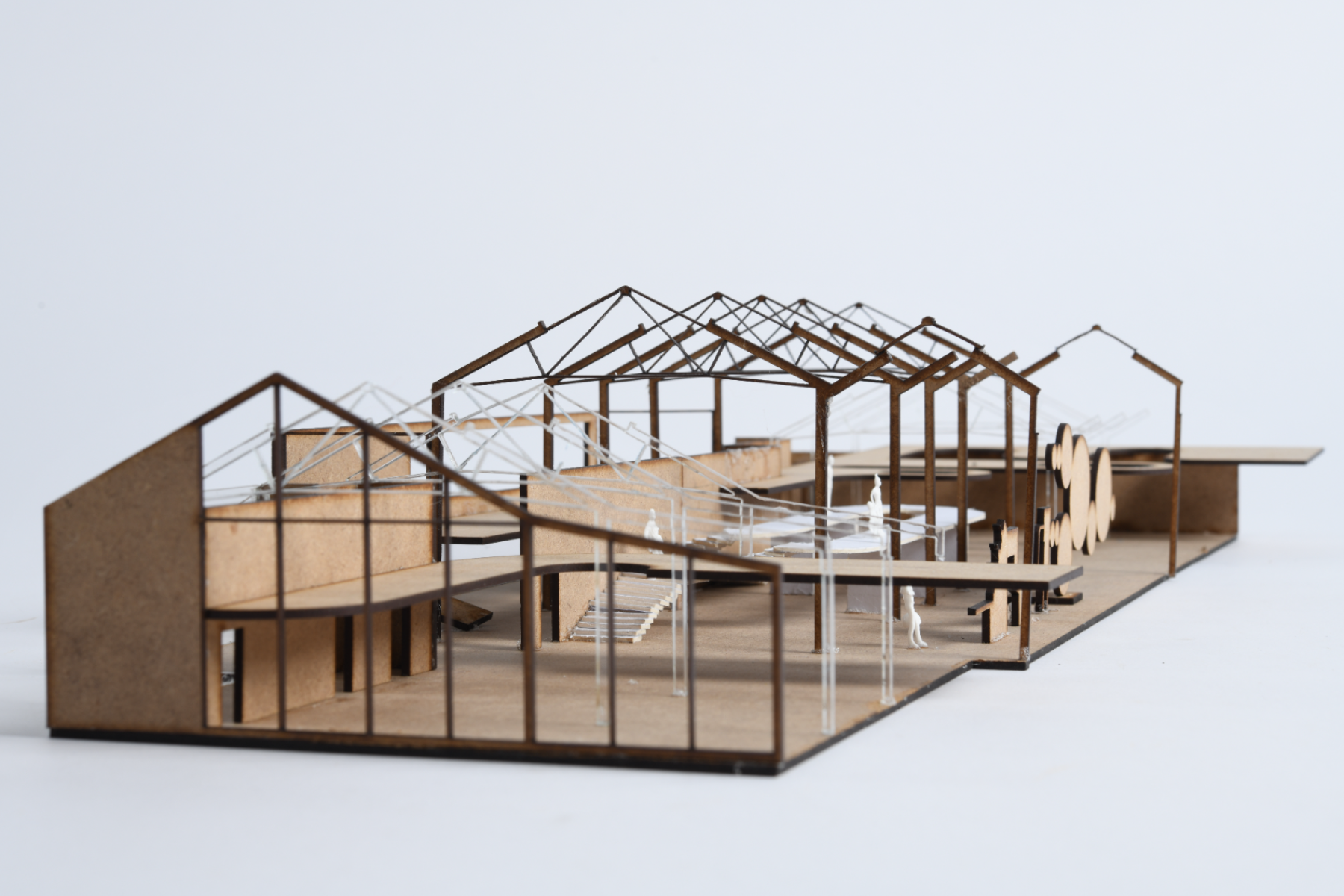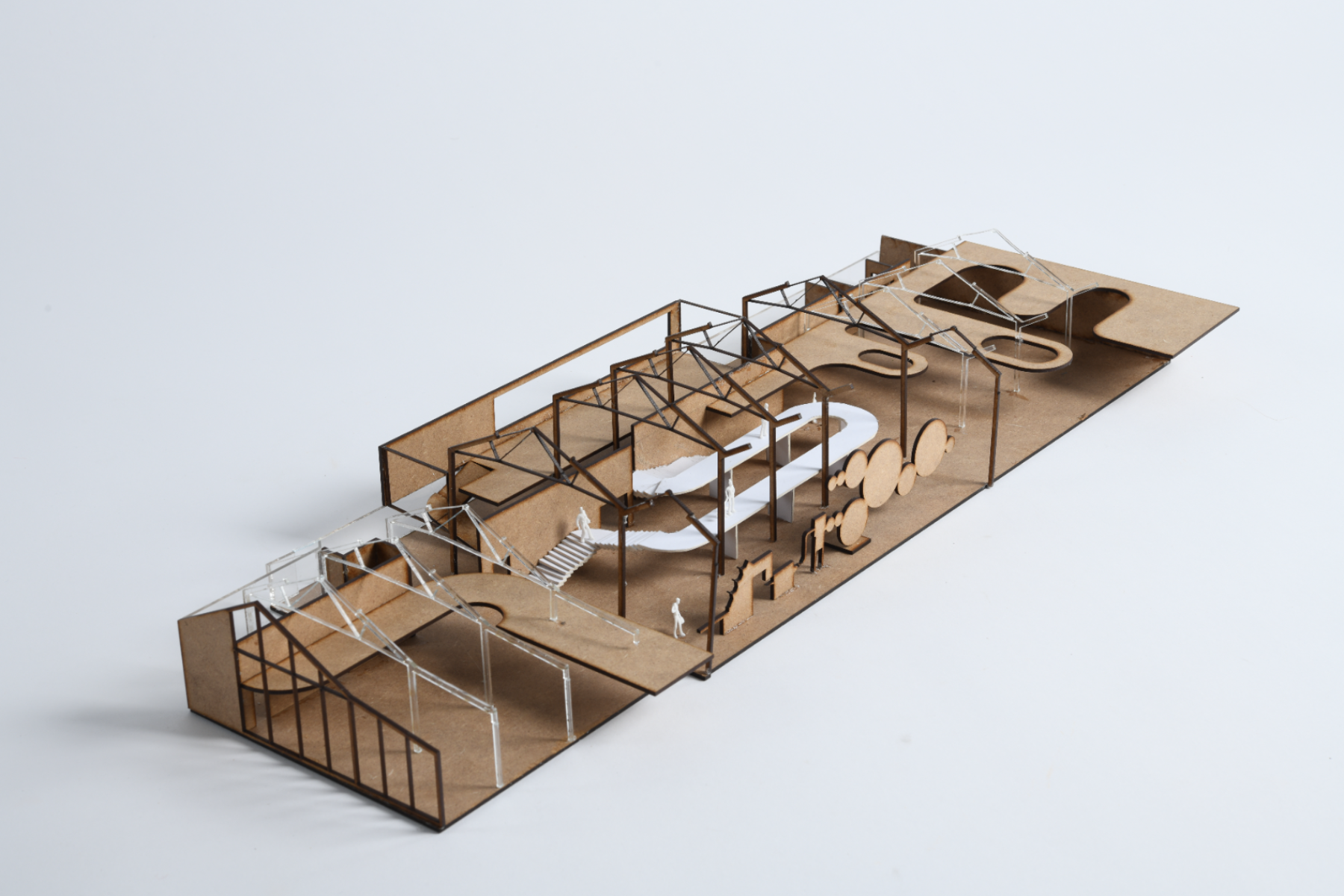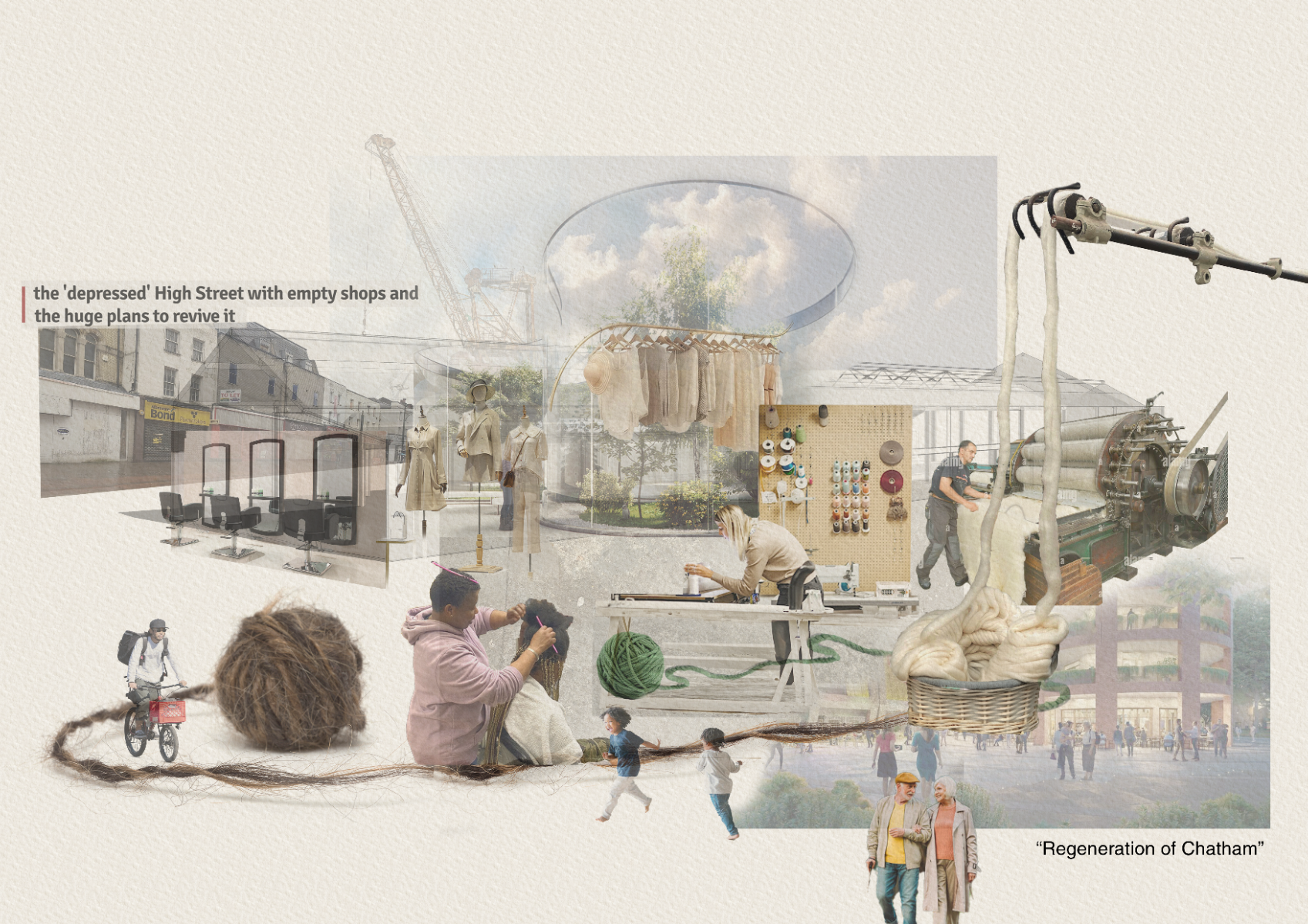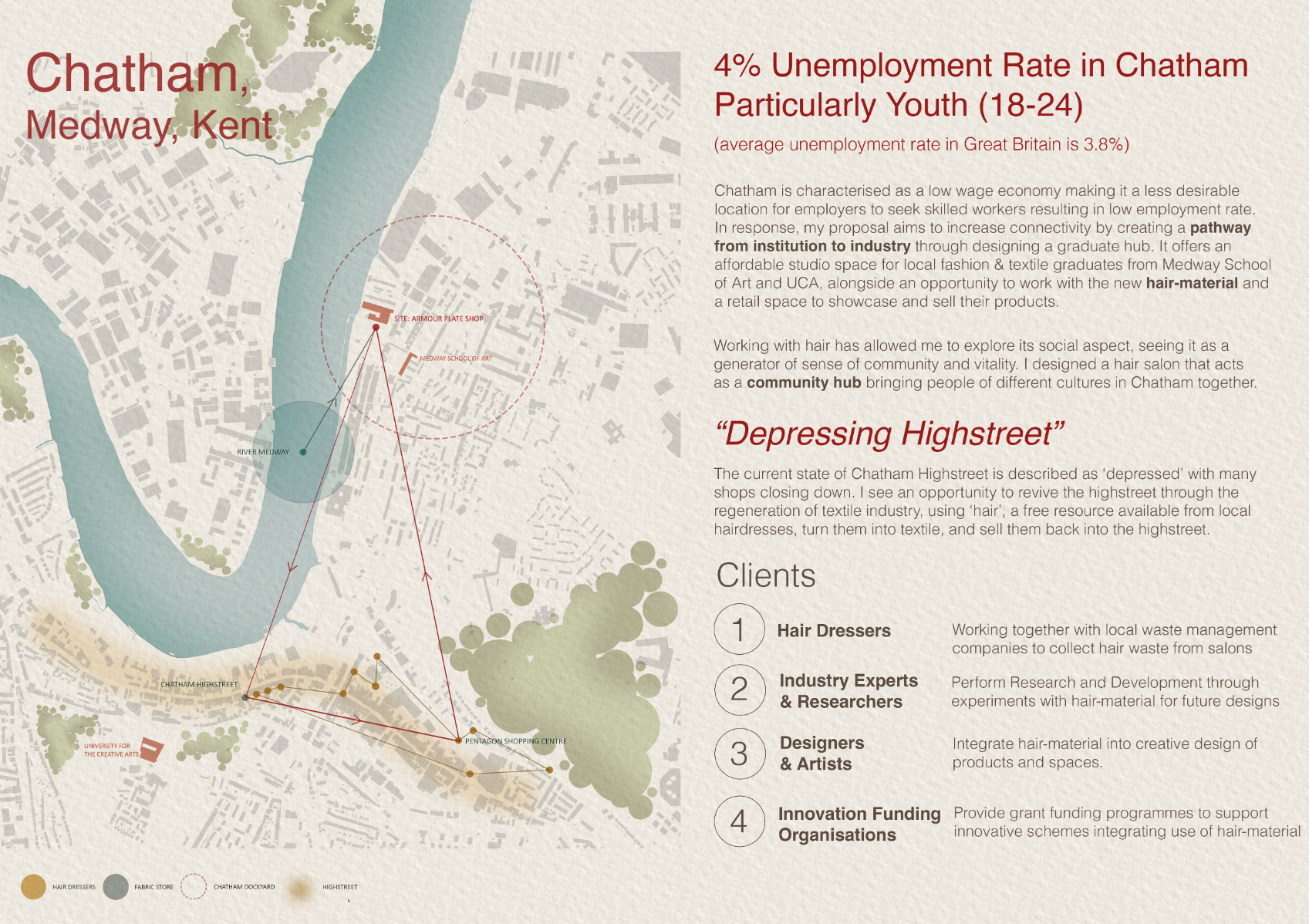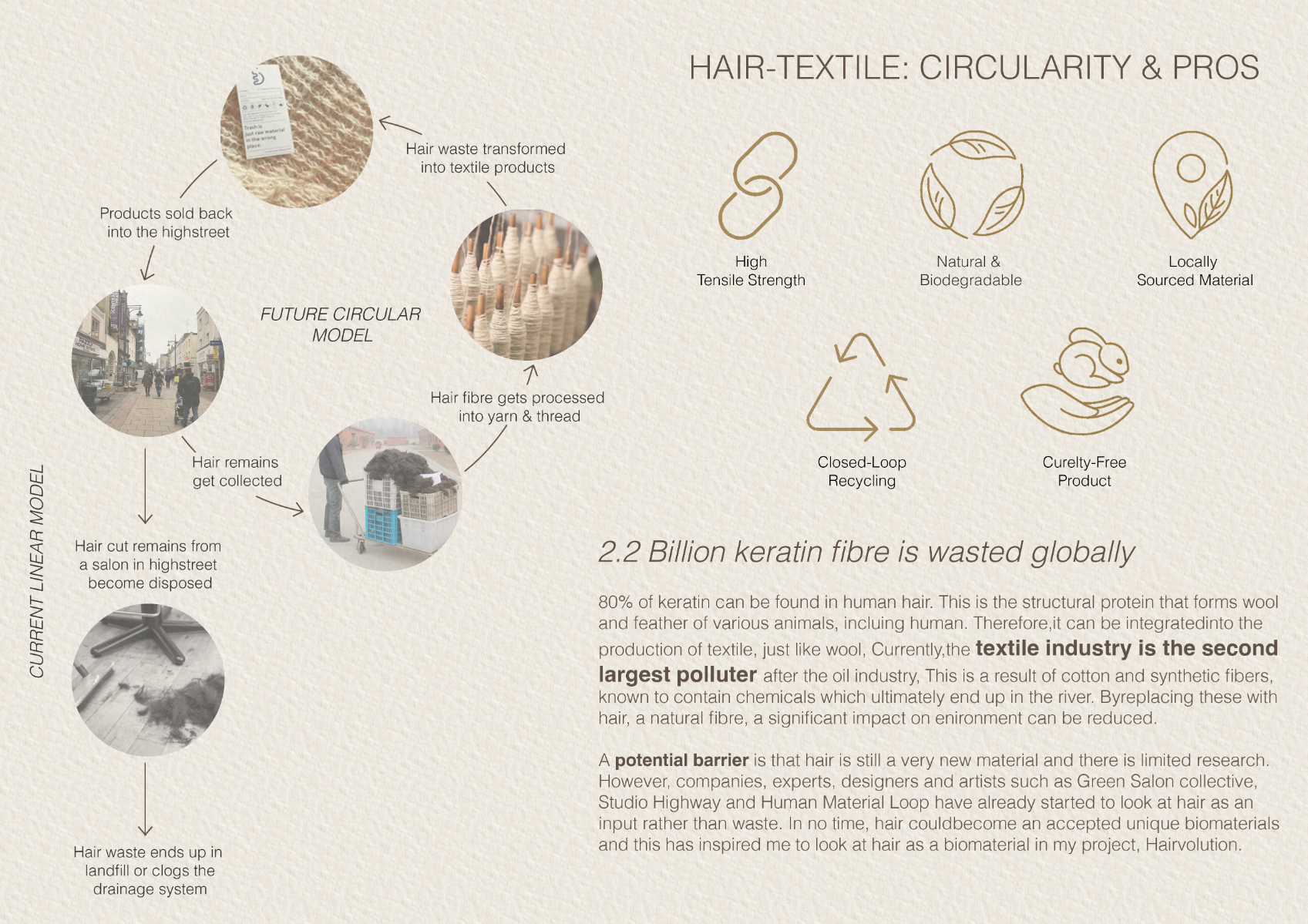Ping Panisara Sapchartanan
Interior Design BA Hons
Kingston School of Art
Graduates: 2024
Specialisms: Interior Design / Material Innovation / Interior Architecture
My location: London, United Kingdom
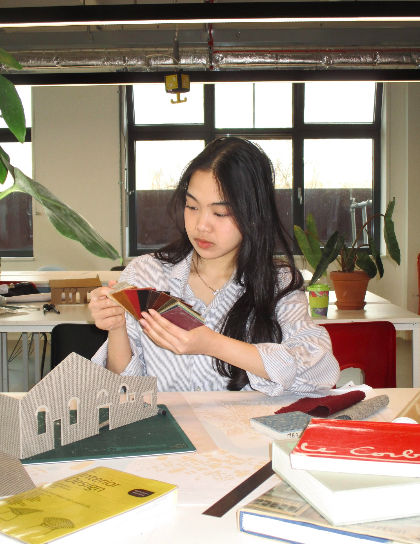
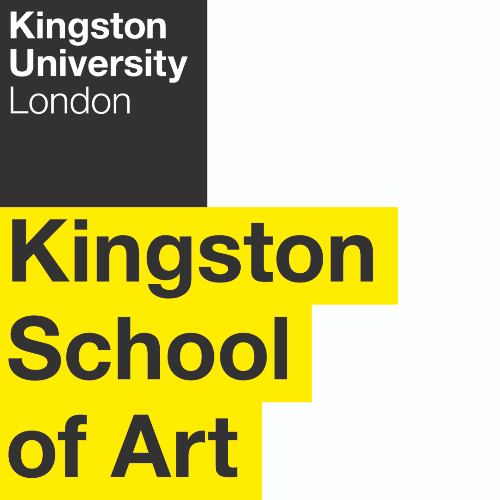
Ping Panisara Sapchartanan

First Name: Ping Panisara
Last Name: Sapchartanan
University / College: Kingston School of Art
Course / Program: Interior Design BA Hons
Graduates: 2024
Specialisms: Interior Design / Material Innovation / Interior Architecture
My Location: London, United Kingdom
Website: Click To See Website
About
hair-volution: regeneration of chatham through human hair
Project Hair-volution aims to utilise human-hair waste from local salons as a bio-material to activate a sustainable circular process, create employment and enhance community life in Chatham, Medway. 72 million kilograms of human hair are wasted in Europe every year clogging the drain and ending up in landfill. 200 years are needed to decompose synthetic fibres which made up 60 percent of the textile industry. They contain virgin plastic and becomes released into rivers polluting them. Human hair- yes human hair, can offer a more sustainable alternative. Our hair contains keratin, the same protein fibre found in animal wool making it suitable for integration into textile production. By replacing the harmful synthetic fibres with hair, we can address both the waste issue and reduce the environment impact of the current textile industry. 'Hair-volution' ignites from my visit to Chatham. Chatham is characterised as a low wage economy making it a less desirable location for employers to seek skilled workers, resulting in low employment rate. The current high street is described as 'depressed,' with many shops closing down. I see an opportunity to revive the area by repurposing a former armor plate shop from Chatham’s historic dockyard into a hair-textile production facility. This facility would utilise hair waste from local salons to create new products, which would then be sold back into the high street, with the building serving as the first retail satellite. The proposal also offers affordable studio space for local art graduates, to increase connectivity between institutions and industry, alongside opportunities to work with the new hair-material produced in the same building. Working with hair has also allowed me to explore its social aspect, seeing it as a generator of sense of community and vitality. I designed a hair salon that functions as a community hub bringing people of diverse cultures in Chatham together. Beyond textile, human hair can be applied in product and architecture materials. Hair Highway, a project by Studio Swine reimagined hair as an alternative to tropical wood, an overconsumed natural resource. Inspired, I began collecting hair from local salons and binded them with bio resin, which I integrated into the design of counter top in my proposal- the “Hair-line”. Ultimately, 'Hair-volution' aims to deconstruct the unhygienic connotation associated with hair through an educational production experience and spark public fascination with the potential of this new innovative material that can be found on the top of their heads!
Competitions

